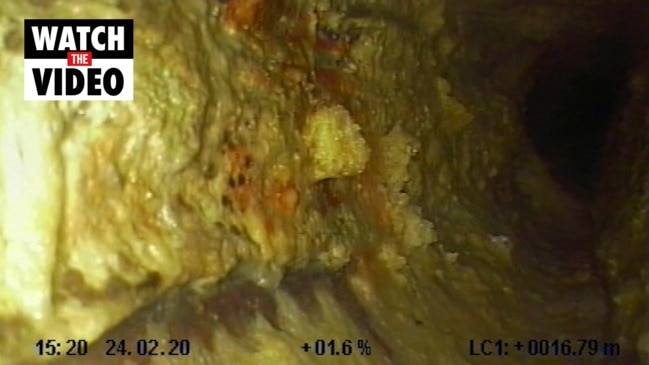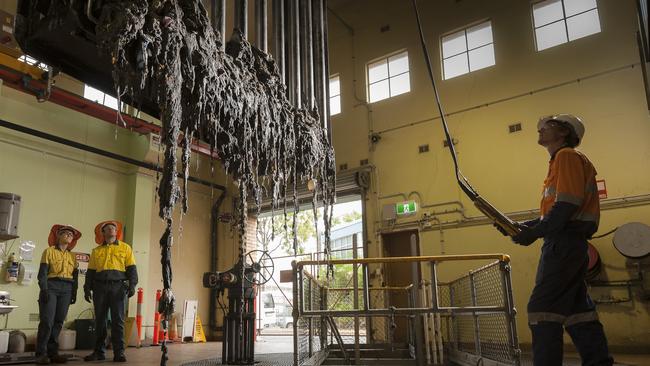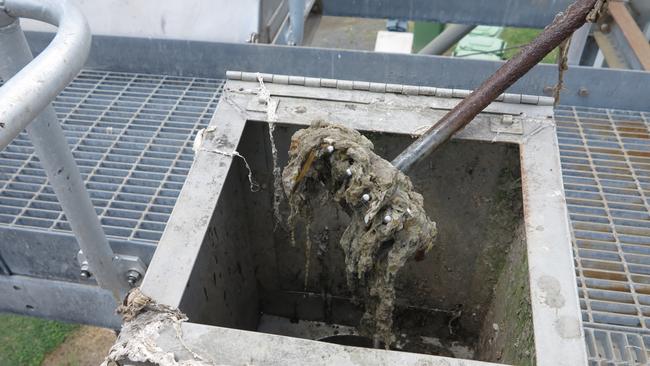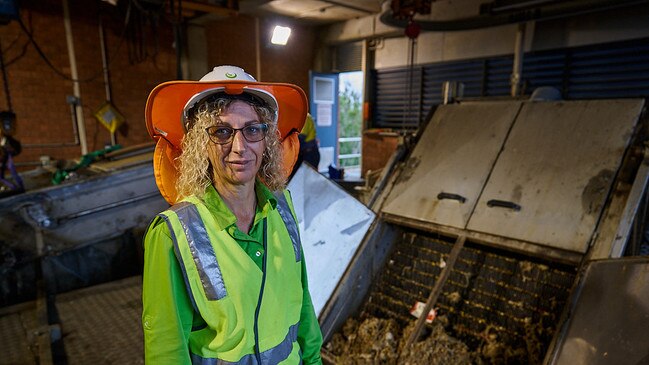Masks, wet wipes, gloves: Qld’s million-dollar sewerage problem
Southeast Queensland’s ongoing sewerage problem has escalated in the past 12 months, with the COVID-19 pandemic responsible for more “avalanches” of nondegradables – including 10 tonnes more wet wipes. See the (gross) pictures.

QLD News
Don't miss out on the headlines from QLD News. Followed categories will be added to My News.
“Avalanches” of nondegradable items are clogging pipes and blocking pumps, with southeast Queenslanders flushing tonnes more wet wipes amid the COVID toilet paper crisis.
Urban Utilities data reveals that southeast Queensland flushed around 10 tonnes more wet wipes down their toilets last year amid the coronavirus lockdown and toilet paper panic, while treatment plants had also seen an increase in masks and disposable gloves being flushed.

The company – which provides water to Brisbane, Ipswich and other smaller southeast Queensland councils – currently spends more than $1 million each year clearing blockages from the region’s sewerage system.
“We’re still seeing an avalanche of wet wipes arriving at our sites every day, but our operators certainly saw a spike during the toilet paper panic in March last year,” Urban Utilities spokeswoman Michelle Cull said.
In total some 135 tonnes of wet wipes – the equivalent of around 23 African elephants – arrived at southeast Queensland sewage treatment plants last year, an increase of around 10 tonnes, or eight per cent, compared to 125 tonnes removed the year before.

Ms Cull said Urban Utilities had also seen “an increase in disposable gloves” as well as the occasional face mask arriving at sewerage plants.
Wet wipes – which don’t degrade like toilet paper – congeal with fats and cooking oils that are poured down the drain to form drain-clogging “fatbergs” around the sewerage network.
“The problem with items like wet wipes is they don’t disintegrate quickly like toilet paper after they’re flushed,” Ms Cull said.
“They get stuck on screens at pump stations and treatment plants and need to be manually cleared and trucked off to landfill.”

Ms Cull said Urban Utilities treats 140 Olympic swimming pools of sewage from more than 1.5 million people every day at an annual cost of more than $1 million.
“Flushing the wrong things down the toilet can lead to blockages in our sewerage network and cause costly problems in household plumbing too.”


